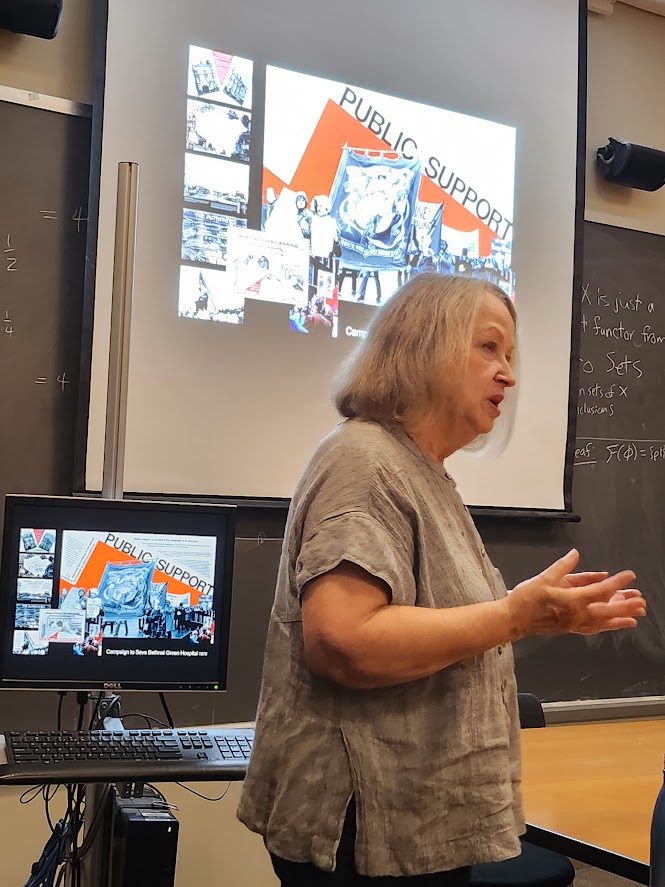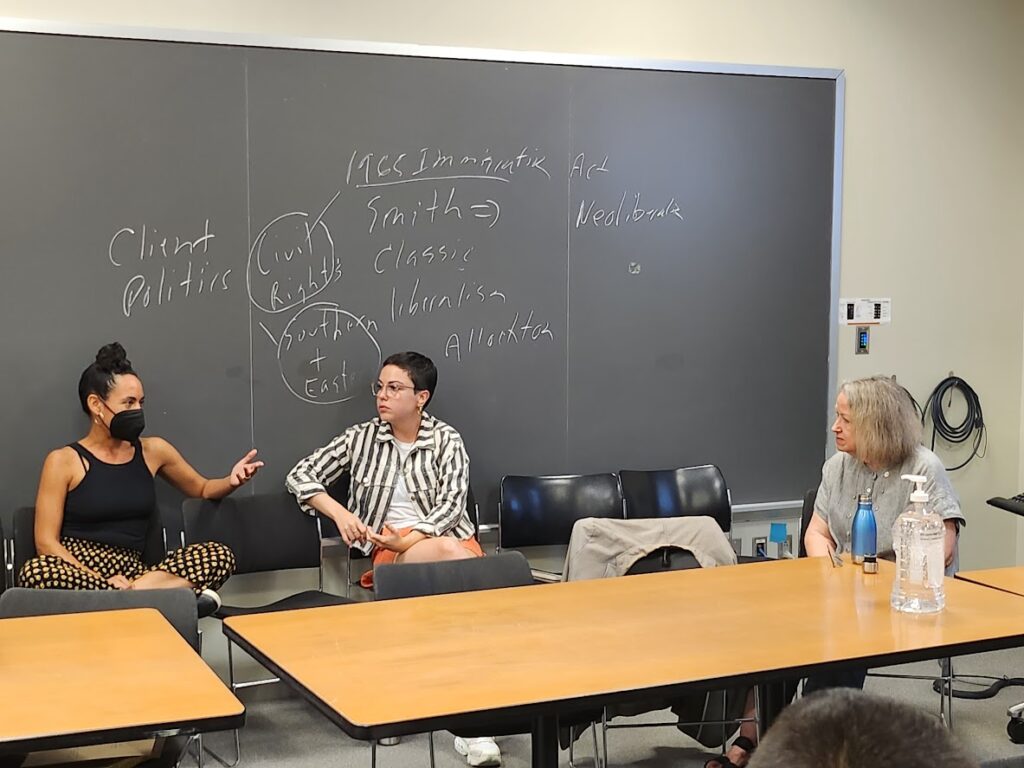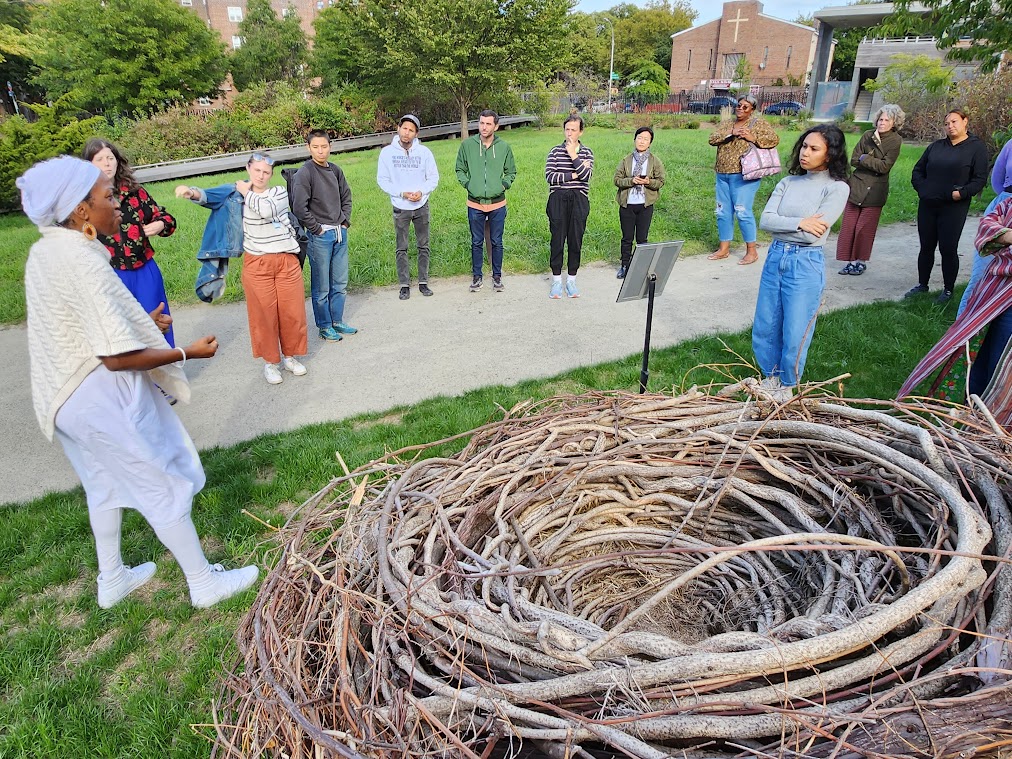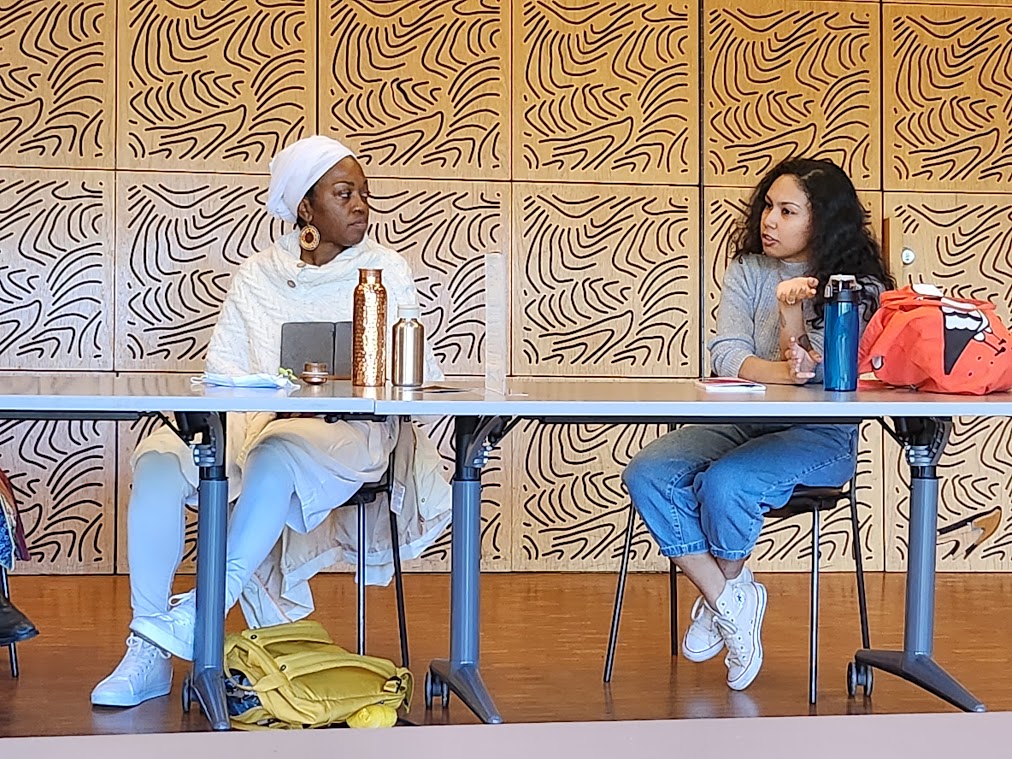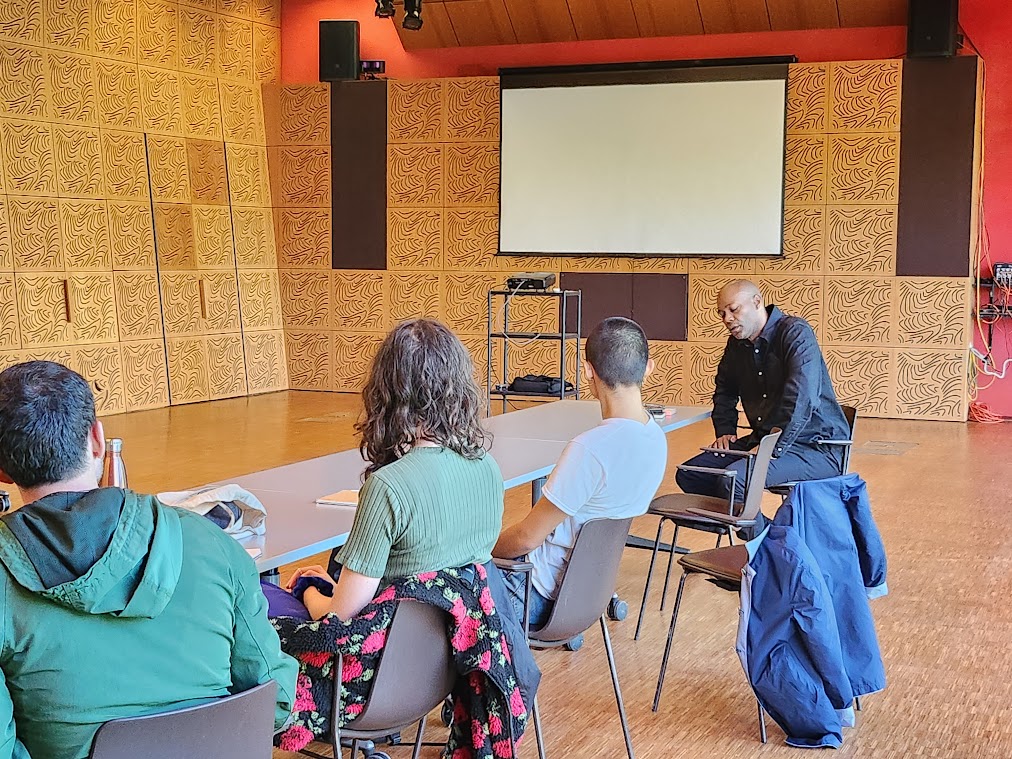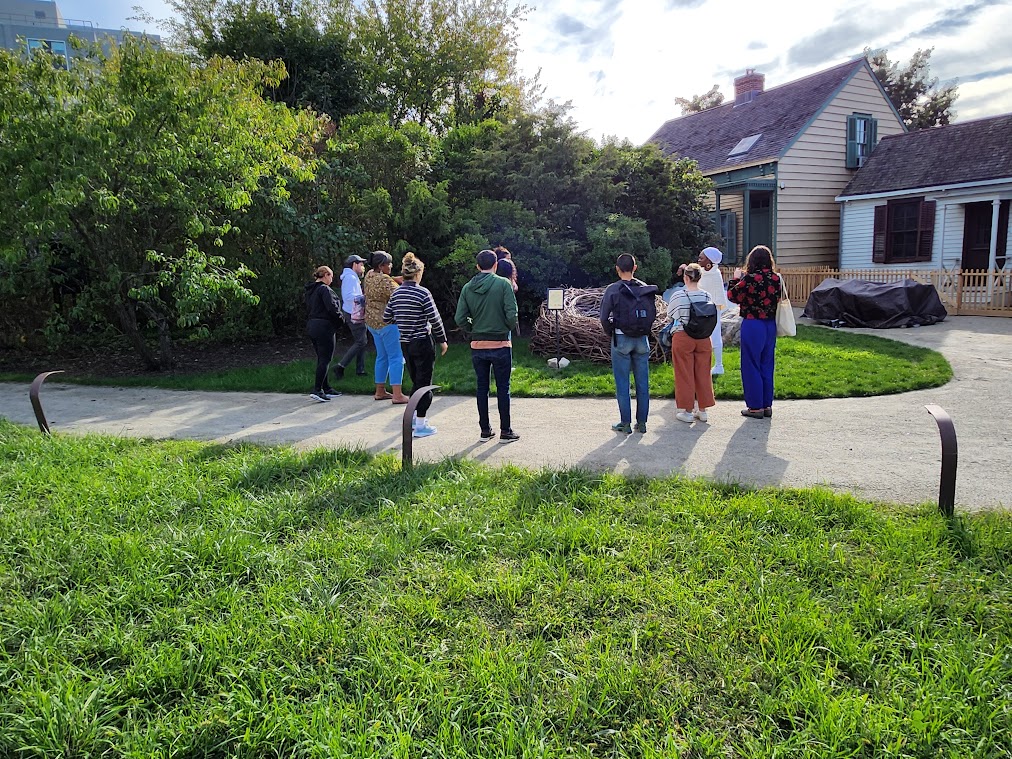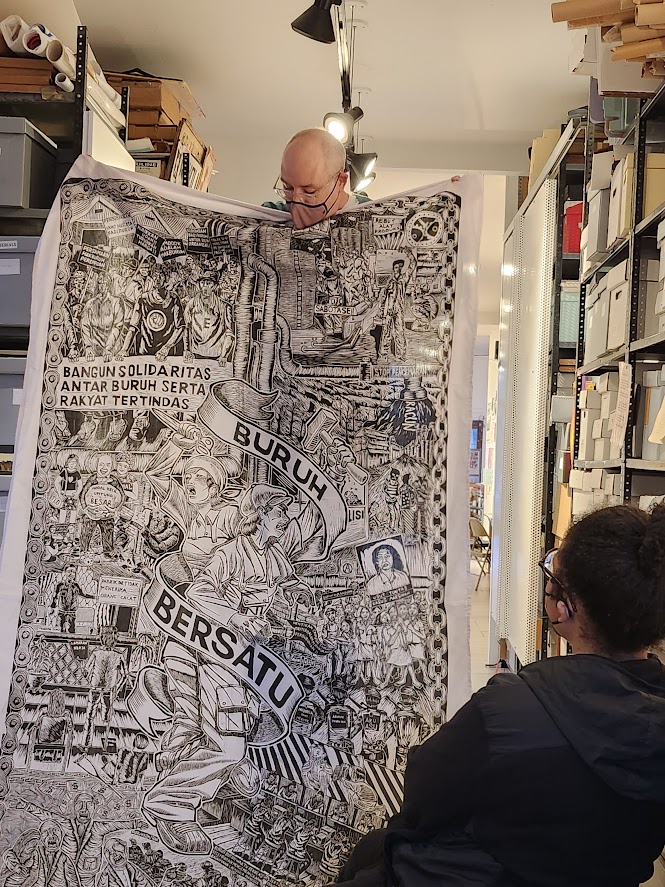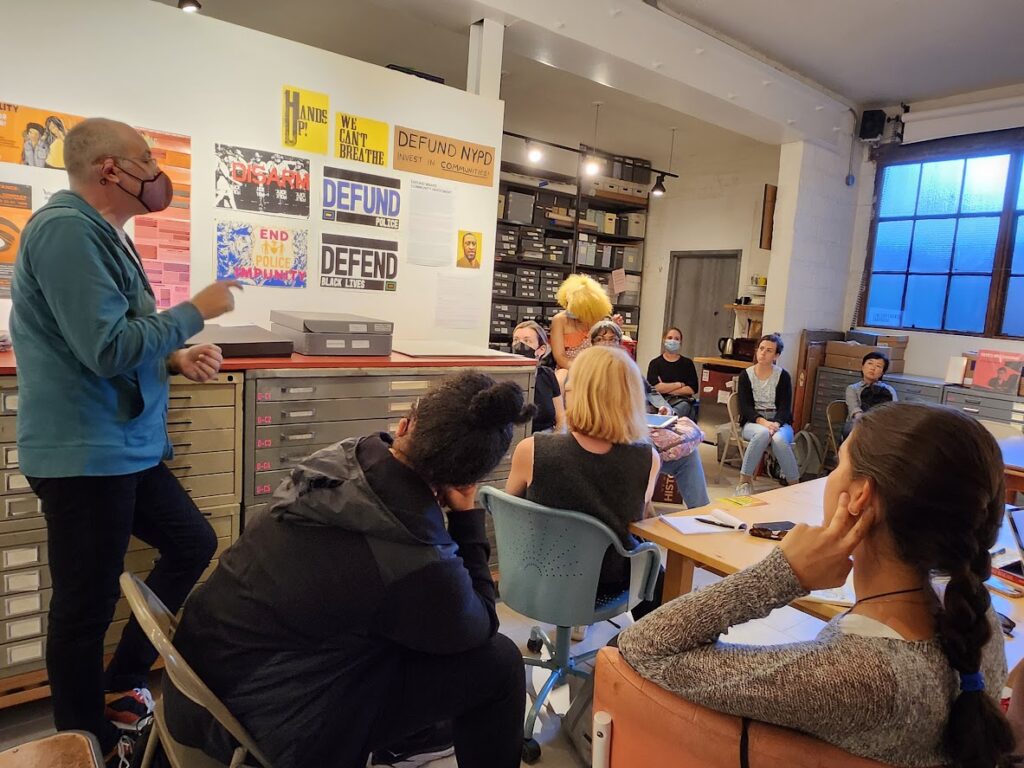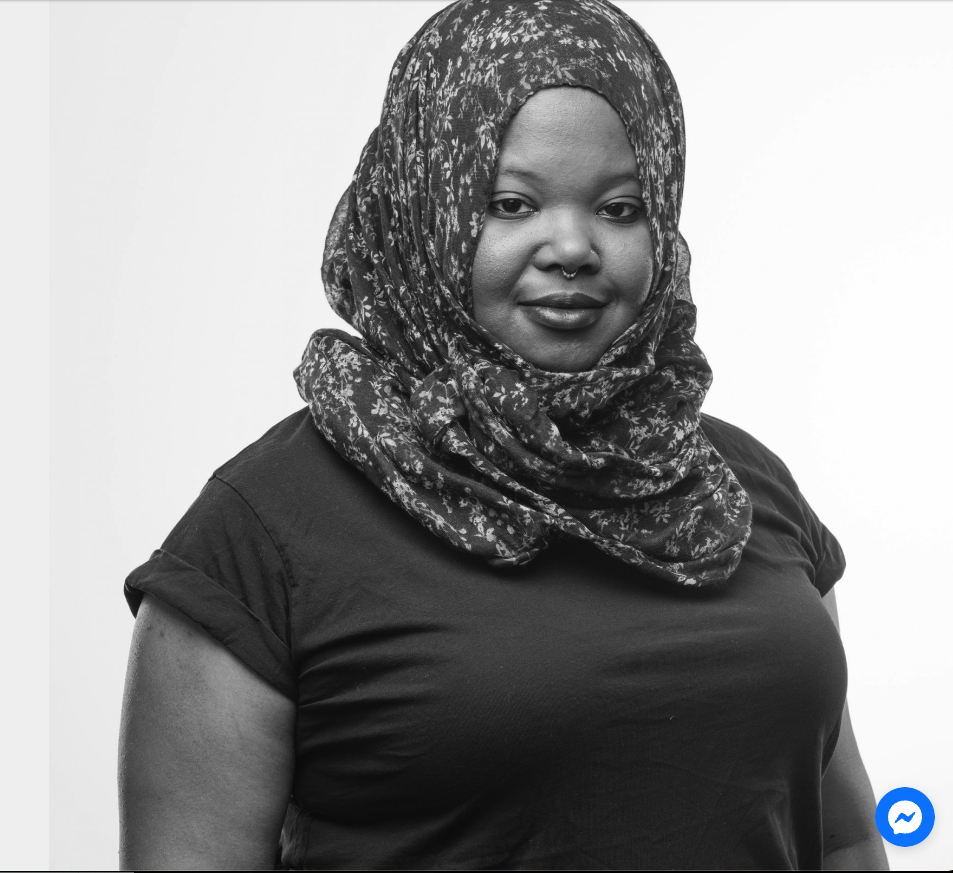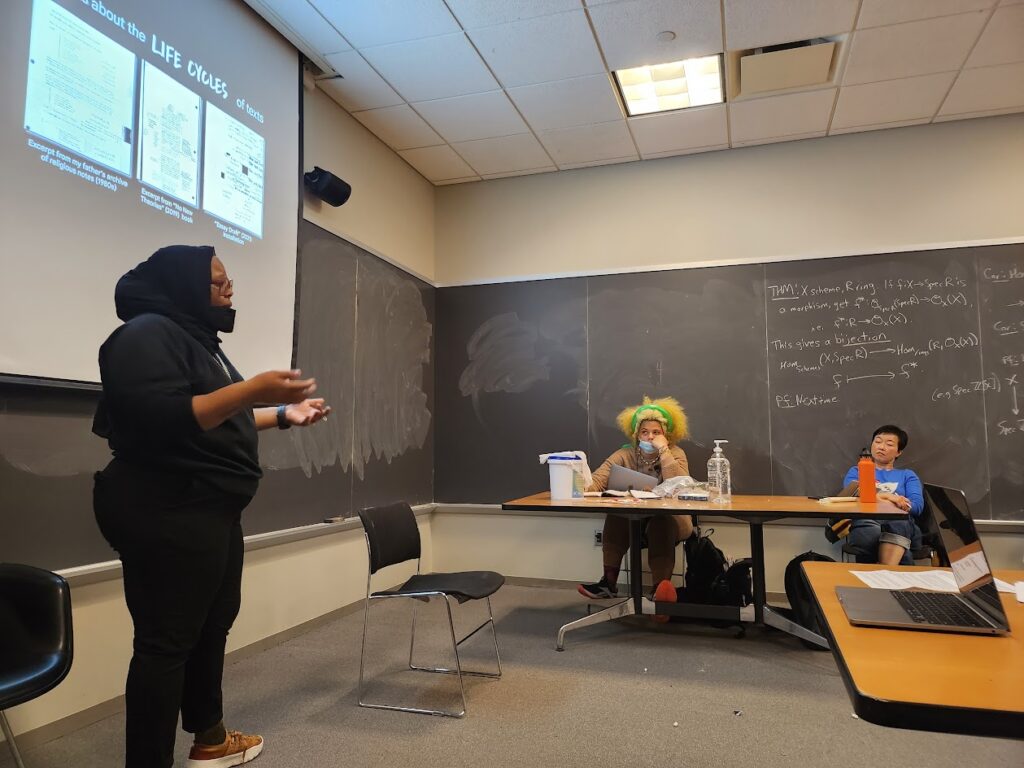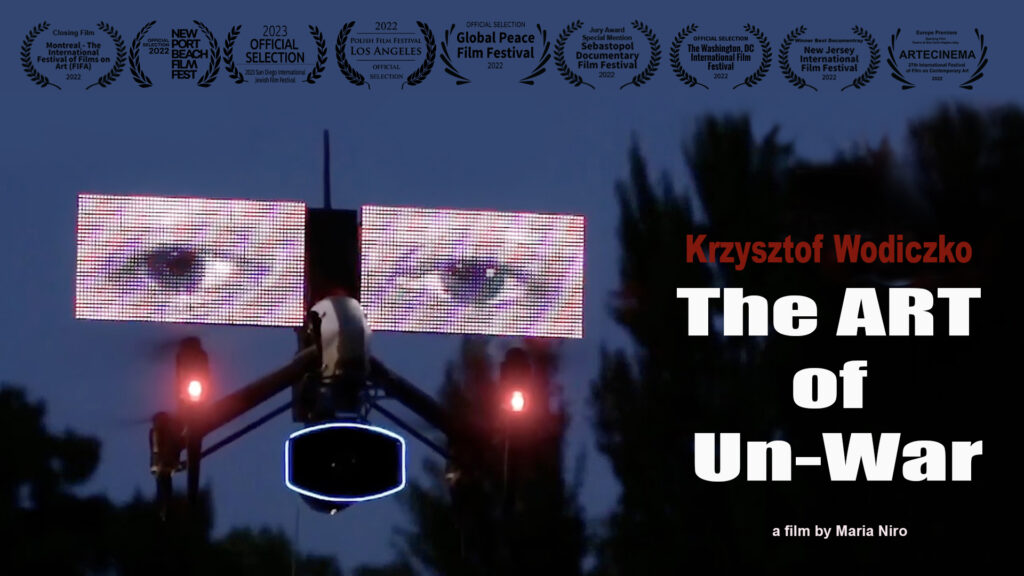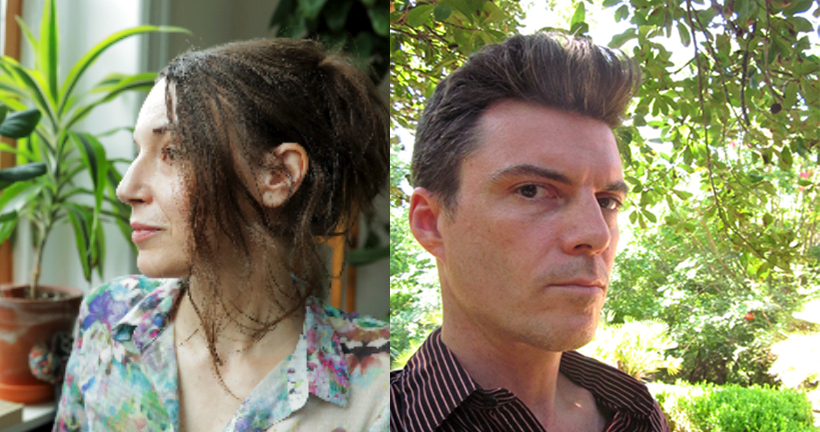__________________________________
History & Theory of Socially
Engaged Art:
Fall 2022
__________________________________
ARTS 777 + EES 79903
Fall 2022
Mondays 2 – 4 PM @ CUNY Graduate Center Room:6417
Dr. Gregory Sholette
Email: gsholetteSTUDIO@gmail.com
** Syllabus and its content might be changed,
please always refer to online site as the latest version.
*** A copy of the basic syllabus is available here: CLICK
An increasing number of artists, curators, and critics have recently turned their energies toward a new type of participatory socially engaged art making. What had previously been marginalized is now gaining more mainstream attention, with a new prominence in museums, biennials, but also on the streets and other public spaces. Even the New York Times has hailed the emergence of this tendency as “social practice art.” The aim of this seminar is to survey, critique and historicize the theory and practice of social practice art as well as activist, interventionist, public, participatory and community based art operating within and across fields such as performance, urban studies, environmental science and other socially engaged disciplines. The class will focus on such questions as: Why is it useful, even necessary, to understand the history and theory of social practice art? Where should we look to find the historical roots of social practice art? Are these within the history of art, or external to it, or crossing a line between two spheres of cultural interpretation and understanding? And what is the “social”? In an increasingly privatized society how do we define and operate within a concept of the public sphere? And how are both mainstream and alternative types of cultural institutions responding to the increasing interest in socially engaged art by emerging artists? Through lectures, readings, discussions and student research presentations we will seek to position socially-engaged visual culture and the shifting role of the artist within an historical, ideological, and critical framework. If possible, guest speakers and offsite visits will also be added as available.
* Course objectives, expectations and assignments appear at bottom of page *
_________
_________
THE SYLLABUS
_________
August 29: Introductions & Overview of the Seminar
And Some origin stories about socially engaged art
Pablo Helguera – Education for Socially Engaged Art
Grant Kester – Eyes of the Vulgar
_________
* No Class Sept 5 *
_________
*RECOMMENDED: Rick Lowe at Gagosian Gallery Thurs Sept 8 – 6PM
Meditations on Social Sculpture
September 8–October 22, 2022
541 West 24th Street, New York
_________
Sept 12: field reports about Documenta 15 (Lia & Greg)
Overview of the project and the Lumbu by ruangrupa: documenta 15
Readings:
“Curating Bad” (gsholette draft essay for e-flux sept 2022)
Statement on alleged anti-Semitism by Erroristas
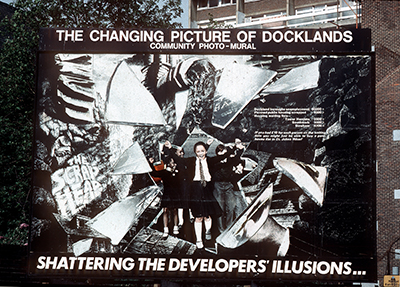
_________
Sept 19: Conversation with Dr. Loraine Leeson & Julia LePla
Dr. Loraine Leeson Senior Lecturer in Fine Art, Middlesex University, London
Julia LePla Senior Manager, Learning Partnerships, Tate Modern, London
Please click on names for more information
Reading:
Loraine Leeson: Art, Process, Change: Some Lessons Learned in the Art of Social Engagement (2017)
Meet with our special guests at the usual time and place GC Room 6417
_________
* NO CLASS: Tuesday Sept 26 *
_________
Sept 29: Thursday Make-Up Date: Weeksville Cultural Center, Brooklyn
158 BUFFALO AVENUE,
BROOKLYN, NY 11213
And Some origin stories about socially engaged art
_________
_________
_________
Oct. 3: Social Art Theories Part One
Readings:
Claire Bishop – Antagonism and Relational Aesthetics (2004)
_________
* NO CLASS Oct. 10 *
Oct. 17 Social Art Theories (continued)
Readings: “Collectivism After Modernism” Introduction PP 1-15 (U. Minneapolis 2006)
Reading: Sholette – Introduction Art of Activism (2022)
Grant Kester – Eyes of the Vulgar (2004)
Pablo Helguera – Education for Socially Engaged Art
________
Oct. 24: Presentations of research/art projects in progress
and a conversation with Chloë Bass. (graduate center)
_________
Reading: Public Art as an Invitation Towards Abolition
Oct. 31 Open Discussion – Mid Term reflection and review
_________
Nov 7 Josh MacPhee at Interference Archive Brooklyn (on location)
[Check Date]
We meet 314 7th St. Brooklyn
Reading: IA: Building a Counter-Institution in the USA
Please email me one question for our host by Sunday evening 6PM (Nov 6)
Nov 14 A visit from artist Kameelah Janan Rasheed
Readings/Resources SEE: https://kameelahr.com/
** And please stay late today (nov. 14) at the GC for a special screening and live discussion of The Art of Un-War: Screening & Discussion with Krzysztof Wodiczko from 6-8 PM in the Segal Theater **. FOOD WILL BE PROVIDED !
__________________________________
Nov 21 Terike Haapoja & Ashley Dawson: environmentalism & posthumanism
Readings:
Towards a Time After “The Animal” by Haapoja
Introduction to Dawson’s book Capitalism and Extinction
hope against hope writings on ecological crisis
Terike Haapoja is a Finnish visual artist based in Berlin and New York. With a specific focus in encounters with nature, death and other species, Haapoja’s work investigates the existential and political boundaries of our world. In recent projects, Haapoja’s work has been focusing more explicitly on how the otherness of nature and other species is constructed by political, theoretical and societal structures. The notion of a world that is deeply rooted in the physicality and co-existence of beings and their multiple lifeworlds is at the core of Haapoja’s politically and ethically driven practice. Haapoja’s work has been exhibited widely in solo and group shows internationally – she represented Finland in the Venice Biennale in 2013 with a solo show in the Nordic Pavilion Her work has been awarded with Dukaatti prize (2008), Säde -prize (2009) and Finland’s Festival’s artist of the year -honorary mention in 2007. Haapoja was nominated for Ars Fennica – prize candidate in 2011. The History of Others was awarded with Kiila-prize in 2013.
Ashley Dawson is an author, activist, and professor of English at the CUNY Graduate Center, and at the College of Staten Island, City University of New York. Dawson specializes in postcolonial studies, cultural studies, and environmental humanities with a particular interest in histories and discourses of migration.[1] Since 2004, Dawson has been a contributing member of the Social Text collective.[2] Dawson was co-editor of Social Text Online from 2010-2014 and, by appointment of the American Association of University Professors (AAUP), he was also editor of the Journal of Academic Freedom from 2012-2014.[3] He has published and edited numerous books, and his essays have appeared in journals such as African Studies Review, Atlantic Studies, Cultural Critique, Interventions, Jouvert, New Formations, Postcolonial Studies, Postmodern Culture, Screen, Small Axe, South Atlantic Quarterly, Social Text, and Women’s Studies Quarterly.
Nov 28: Reflections on the previous weeks discussions, readings and guests.
Dec 5: Tom Finkelpearl will be our final guest. Scroll down to find some of his writings on this website.
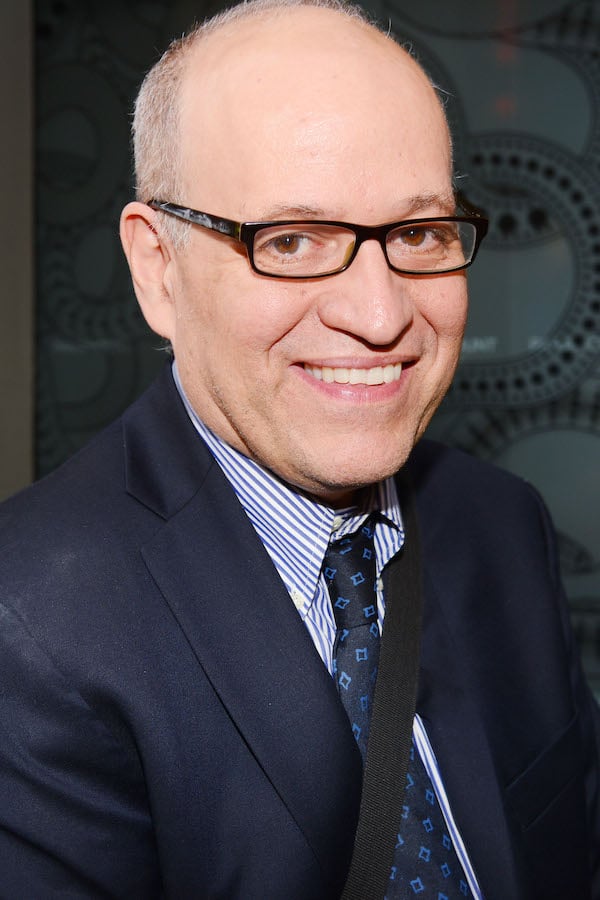
_________
Tom is is an arts promoter, former director of Queens Museum and PS1, and former Commissioner of the New York City Department of Cultural Affairs ( 2014 – 2019). He is also the person most responsible for initiating Social Practice Queens and by extension instrumental to the emergence of SPCUNY.
_________
Dec 12: Final Presentations – Wrap Up – Eat Up
Dec 19: All Papers are Due – please email to <gsholetteSTUDIO@gmail.com>
_________
Possible Sites for Presentations:
Weeksville Heritage Center – Brooklyn
The Graduate Center
Trump Tower ground floor (vintage maga accessory shopping optional)
__________________________________
Learning Goals & Course Outcomes
# Develop theoretical and historical knowledge of emerging social practice art field.
# Explore and debate complexities, paradoxes and possibilities of socially engaged art.
# Engage in original research related to social practices and individual student projects.
# Foster an environment for investigating cross-disciplinary exchange and critical thinking.
# Acquire working knowledge of seminal texts relevant to this field and in relation to the broader background of art history.
Five Research Questions this Course will Attempt to Answer
1. The definition question: How does social practice differentiate
itself from social service ? Is this important to resolve? What kind of
questions and assumptions arise if we seek to make social practice its own
distinct artistic method? And what sort of questions and assumptions arise if we do not differentiate it from art or from say, community work, environmental activism, urban reform, or social justice advocacy?
2. The institutionalization/academic question: Is social practice art
radically opposed to mainstream art and culture? Is it rejuvenating it? Or is
it being co-opted by it? How can we frame this question to get beyond simple answers and find a more engaging and useful thesis from which to work?
3. The context question: Who is a social practice artist and what sort
of “agency” does she or he have in a world of hyper-surveillance and economic ? And who is such work made for and why? Is it global or local, white or black, academic, or populist? Does it have a specific historical framing? Is it logical to assume it will be part of future arts academic curricula and how will this alter the study of art and of art criticism, history, curating, etc..?
4. The “aesthetic” question: Is there a social practice art-aesthetic or form or repertoire of forms specific to this kind of work? If yes, what kind of questions do we need to ask in order to investigate what this particular aesthetic consists of? And if there is no such thing as a social
practice aesthetic how will this “lack” impact the practice of social practice
art if at all?
5. The organizational question: the practice of social practice art, as opposed to many other types of artistic practice, inevitably involves processes of organization, administration, and self-governance. What precedents exist regarding this conjoining of artistic and organizational needs and goals, and does a distinctive hybrid of some type emerge from this entanglement?
& Five Evaluative Concepts for determining the presence of a “work of art” (these might be useful for your research and projects):
1. INTENTION – the artist means for the project [the work/performance/event/etc…] to be grasped as a work of art
2. ART-CENTRICITY – artistic concerns or activities are a central concern of the project including para-fictionality and pre-figuration.
3. INSTITUTIONALITY – the project is readable within the discourse and power relations of art industry/art history, criticism & theory
4. WORLDING / WORLD BUILDING – the project’s methods draw upon, explore, and/or expand a uniquely artistic world view or approach to research or expression or making.
5. TRESPASSING – Rick Lowe’s term for mimicry & border-crossing visual art carries out into other disciplines, parts of society or the world.
Assignments and Expectations
A. Generate at least one question for each week’s guest based upon readings and your own research.
B. Make one short (ten minute) presentation during the course of the semester in consultation with instructor.
C. Submit a Final Project last 2 – 3 weeks of semester (two options):
1. Create a performance, situation, exchange for the class tbd.
OR
2. Write a review of a book, extended essay tbd. * This can be the basis of
your short presentation. *
Grading and Requirements
You are responsible for reading and discussing all assigned texts. Attendance is essential due to the participatory nature of this course. All students are expected to come to class prepared and on time.
If a problem arises regarding attendance or assignments, you should
contact me as soon as possible. Missing a class does not mean that you are excused from an assignment. In short, participation and attendance figure heavily in your overall evaluation and grade.
Evaluation:
30% Participation in class
30 % Class presentation
40% Final Project
More About the Final Project Options:
1.) an artistic work based on research and knowledge gained during our seminar. This project needs to be accompanied by documentation of research in the form of a short description of the piece and a bibliography of research references (that must include some written material, three minimum, but can also cite art works, musical compositions, performances etc…)
2.) A second option is to write a book review of 1500 – 2000 words focused on a book or extended academic essay related to the class in general, or about a particular practitioner of socially engaged art. Your review should consist of 1500 – 2000 words and accomplish these objectives: 1.) Summarize why the book/essay is important including what its arguments are and how it relates to socially engaged art. 2.) How does this particular book contribute to the field of art, socially engaged practices, improving society? 3.) Does the author(s) achieve what they set out to do and does their argument make sense? Additional notes: if you quote the author be sure to add the page number of the citation inside (parentheses). For more details see: BOOK REVIEW GUIDELINES, and be sure to use this format below for the title of your review:
Title and Subtitle [Upper case and boldface]. Author(s) or Editor(s). Place of Publication: Name of Press, Date. pp.[both Roman and Arabic numerals]; maps, diagrs., ills., notes, bibliog., index [include these as appropriate].
Geographies of Mars: Seeing and Knowing the Red Planet. K. Maria D. Lane. Chicago, IL: University of Chicago Press, 2011. xiii and 266 pp., maps, photos, diagrams, illus., notes, bibliog., index.
__________________________________
__________________________________
__________________________________
Additional Reading Resources:
Global Conceptualism (Intro Only)
Michael G. Birchall, Socially engaged art in the 1990s and beyond
—
SPECIAL INSERT: COVID-19 READINGS:
“The Corona Reboot” by Ian Alan Paul
“Coronavirus Propagations” by Jonas Staal
—
Counter Critiques of Social Practice Art
Ben Davis in International Socialist Review
Notes about Joseph Beuys, Gregory Sholette (2018)
—
Art and Labor and Feminism:
M. UKELES MANIFESTO PDF Download
The labor-oriented performance art of Marty Pottinger
Interview with Marty Pottinger
Visit the Guerilla Girls website: https://www.guerrillagirls.com/
—
From Tom Finkelpearl:
Finkelpearl, “A Cooperative Animal”
Introduction to “What We Made,” by Tom Finkelpearl
Tom Finkelpearl interviews Mierle Laderman Ukeles from his book Dialogues in Public Art.
—
SPQ’s Urbanism/Transforming Corona Plaza Project 2012:
http://www.streetfilms.org/queens-corona-plaza-a-community-place-rises/
Transforming Corona Plaza Studio Presentation
Sholette interview with T. Cruz “Urban Policy & DNA”
Article about Immigrant Movement International (IMI)
The Collective Making of ABC NO RIO, Nandini Bagchee
—
On Theaster Gates:
John Colapinto, “The Real-Estate Artist,” The New Yorker, Jan. 20, 2014https://www.ted.com/talks/theaster_gates_how_to_revive_a_neighborhood_with_imagination_beauty_and_art?utm_campaign=tedspread&utm_medium=referral&utm_source=tedcomshare
Nate Bert, “From Theaster Gates to Assemble: is there an art to urban regeneration?”
Gary Younge, “Theaster Gates, the artist whose latest project is regenerating Chicago.”
Sholette, “Art After Gentrification.”
—
On REPOhistory:
1992 REPOhistory sign project catalog
Overview of REPOhistory 1989-2000
Online documentation of REPOhistory signs (select)
Fordham Urban Law Journal about 1998 REPOhistory project
REPOhistory slide presentation with notes: click here
—
Additional Resources:
PPT LECTURE: A BRIEF HISTORY OF INSTITUTIONAL CRITIQUE
The Tate’s Definition of Socially engaged art practice
Identity and Political Art as Mainstream Culture
Proletarian Fashion Dolce & Gabbana (seriously?)
______________________________________________
______________________________________________
CUNY Boiler Plate:
CUNY
POLICY ON ACADEMIC INTEGRITY
The Policy on Academic Integrity, as adopted
by the Board is available to all candidates.
Academic Dishonesty is prohibited in The City University of New York and
is punishable by penalties, including failing grades, suspension, and
expulsion. This policy and others related to candidates’ issues are available
to you at: http://qc.cuny.edu/?id=IUHC
USE
OF CANDIDATE WORK
All teacher education programs in New York
State undergo periodic reviews by accreditation agencies and the state
education department. For these
purposes, samples of candidates’ work are made available to those professionals
conducting the review. Candidate
anonymity is assured under these circumstances.
If you do not wish to have your work made available for these purposes,
please let the professor know before the start of the second class. Your cooperation is greatly appreciated.
REASONABLE
ACCOMMODATIONS FOR CANDIDATES WITH DISABILITIES
Candidates with disabilities needing academic
accommodation should: 1) register with and provide documentation to the Special
Services Office, Frese Hall, Room 111; 2) bring a letter indicating the need
for accommodation and what type. This should be done during the first week of
class. For more information about services available to Queens College
candidates, contact: Special Service Office; Director, Miriam Detres-Hickey,
Frese Hall, Room 111; 718-997-5870 (Monday – Thursday 8:00 a.m. to 5:00 p.m.
& Friday 8:00 a.m. to 4 p.m.).
______________________________________________


